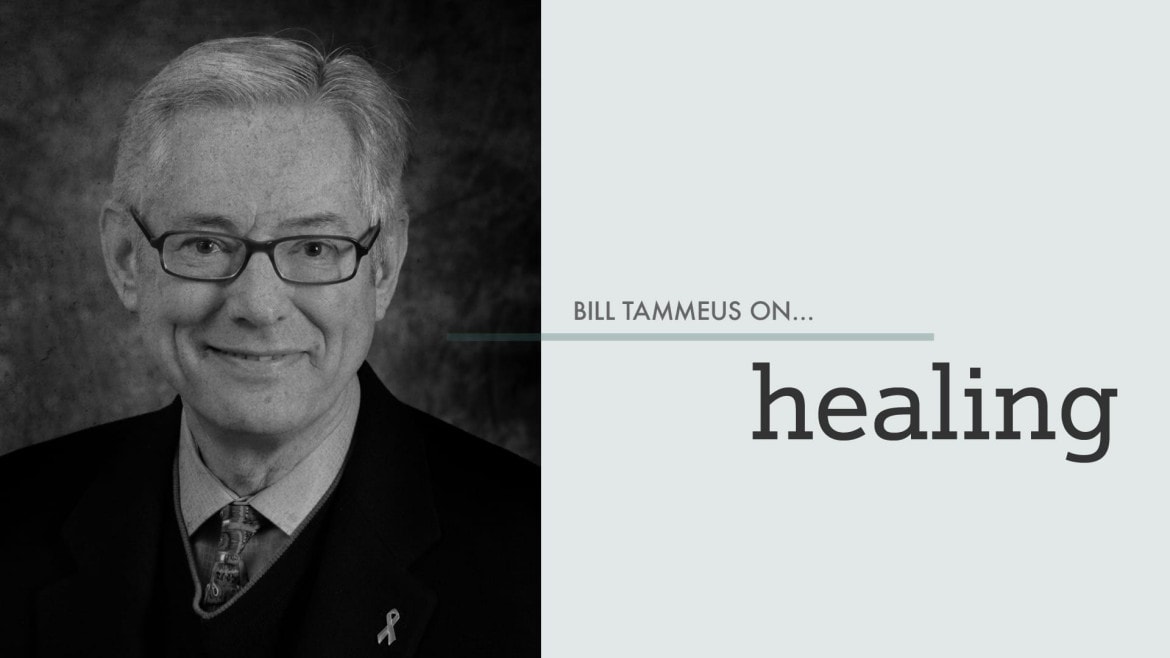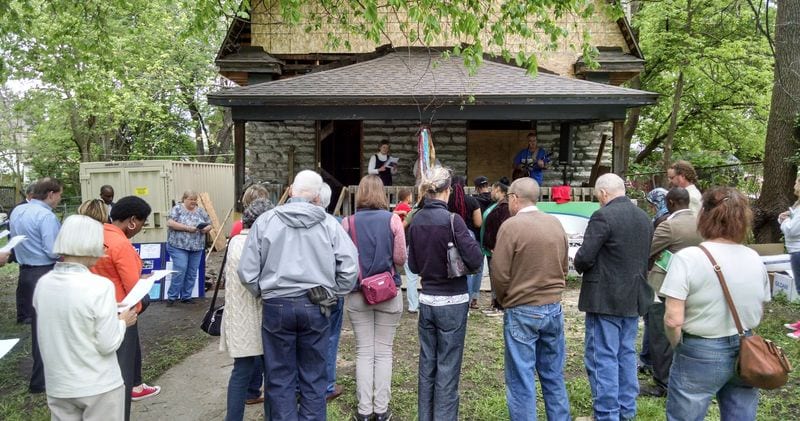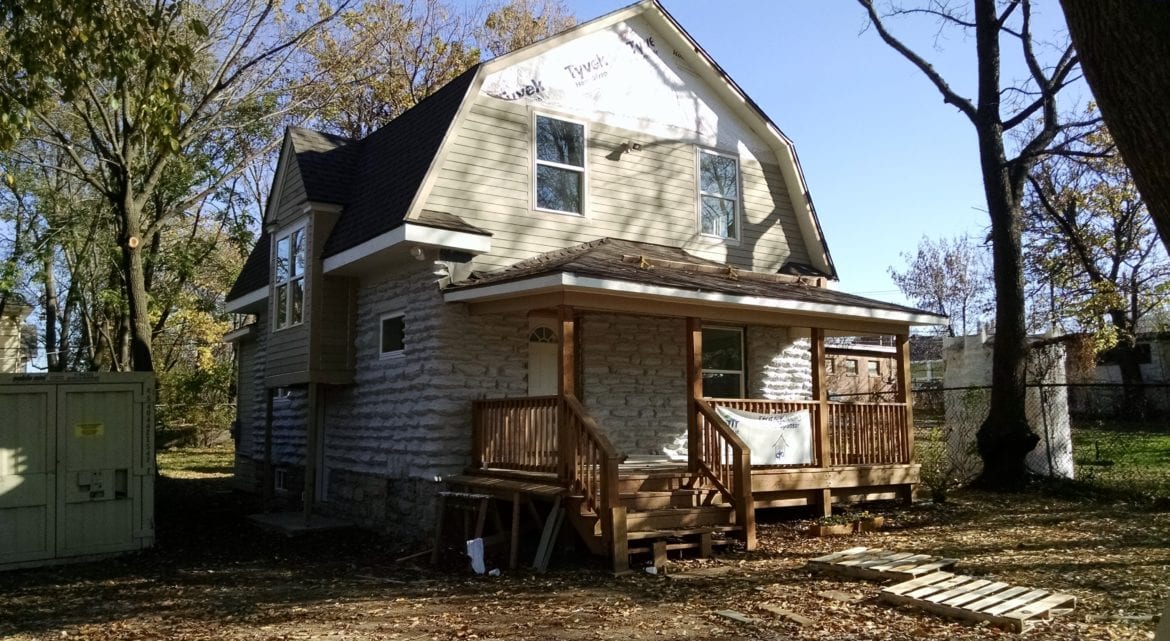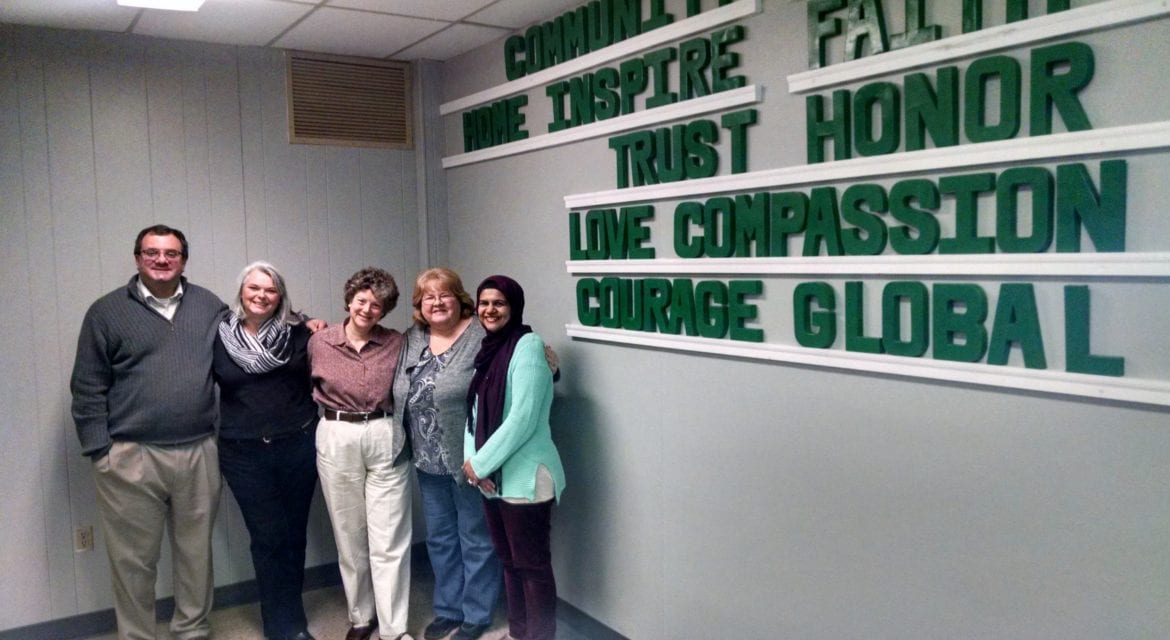Commentary |Walls That Unite

Published November 27th, 2016 at 6:00 AM
One morning in June 2007, I stopped by the construction site of a Habitat for Humanity house in the 3700 block of Flora Avenue and noticed that work had come to a temporary halt.
As I explained soon after that in a Kansas City Star column, someone at the site had noticed that something didn’t seem quite right in this multi-faith project called “The House That Abraham Builds.” So, a Habitat staff member serving as construction crew chief had gone back to his nearby office to get the paper plans.
“This,” one of the stalled volunteers announced, “is a good exercise in problem-solving.”
As I then wrote, “One problem this Habitat project is trying to solve in at least a small way desperately needs to be solved in a larger way: interfaith understanding and cooperation.”
Almost a decade later, Habitat’s Abraham house-building effort — involving Kansas City-area Jews, Christians and Muslims — has nearly completed its fifth home, this one near 31st Street and Highland Avenue. And although there’s still much left to do to promote widespread interfaith understanding and cooperation, people involved in this work are convinced they’ve made a difference and are committed to continuing.
This is especially important as Americans recover from a foul presidential campaign that unleashed forces of bigotry and darkness. In fact, what’s now called the House of Abraham Habitat project in Kansas City is looking more and more like a model the divided nation could use to help heal some of its wounds.
“For me,” says Jude Huntz, who represents Visitation Catholic Parish on the Abraham planning team, “what’s great about the three Abrahamic religions is the core value we all have of hospitality. We’re not only coming out of our own homes to build a home for somebody else, but we’re breaking down walls and barriers to do that. It’s my hope that, because of the climate we’re in, we’ll see an even greater participation.”
I sat down recently at the Habitat offices on East Linwood Boulevard to speak with Huntz; Carol Hobbs, the Episcopal Diocese of West Missouri representative on the team; and Sofia Khan, the team’s Muslim representative, along with Habitat staffers Dana Bass and Carrie Wilson.
As a result of the election, Khan says, many people have expressed to her a need to be more engaged in interfaith and cross-cultural work, so as not to succumb to the xenophobic, racist and sexist language sometimes heard in the campaign.
“Whoever is hurting,” she says, “the way they feel that they can heal is by getting more and more involved. And this [the House of Abraham] is one of the amazing opportunities. I keep coming back here and coming back because what I have here is a long-term relationship” with non-Muslims.
Over the past decade, at least 16 Jewish, Christian and Muslim congregations have been involved in the project, as well as individuals with no congregational ties. Each time a house is completed, Habitat officials locate another Abraham project site and then invite the team to organize a work crew.
Habitat has created housing for some 340 Kansas City families since 1979, and last year it merged with the Habitat unit that serves Kansas City, Kansas.
But in a metro area of more than 2 million people, can an effort that size turn around even one neighborhood?
“The answer is yes,” says Bass, Habitat’s volunteer director. Part of the reason for her optimism is that several years ago Habitat broadened its impact by taking on renovations in addition to building new homes. Several of the Abraham homes have been rehabs.
Either way, however, Christians, Jews and Muslims have come together to work toward a common goal and learn about faith traditions different from their own.
Hobbs says that before she got involved in the Abraham building project, her network of friends outside of her Christian faith included just two Jews. Now she shares meals and all kinds of social and spiritual experiences with Muslims and Jews as well as Christians from other branches of her own faith.
Bass says the homeowner families also have benefited from the interfaith nature of this project, and sometimes the congregations and clergy of those families have helped out.
When work on this fifth house began in the spring, I attended a dedication ceremony at the site of the home, built in 1908. I heard the home blessed with separate prayers from a Christian, a Jew and a Muslim — prayers that reflected the distinctness of the three traditions.
The result has been not just five homes for five families but better interfaith relations at a time when the city and nation need exactly that.
Bill Tammeus, a Presbyterian elder and former award-winning Faith columnist for The Kansas City Star, writes the daily “Faith Matters” blog for The Star’s website and columns for The Presbyterian Outlook and The National Catholic Reporter. His latest book is The Value of Doubt: Why Unanswered Questions, Not Unquestioned Answers, Build Faith. Email him at wtammeus@gmail.com.





